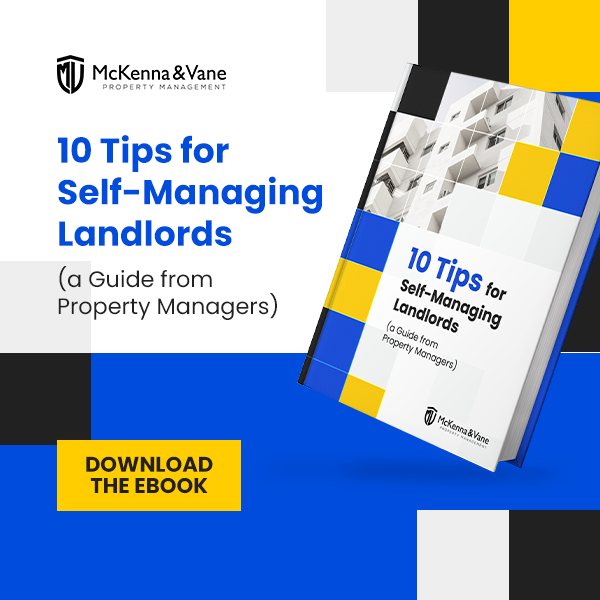A Guide to 1031 Exchanges in Maryland

A 1031 Exchange allows an investor to exchange one property for another and have it be tax free. It gets its name from Section 1031 of the U.S Internal Revenue Code, which spells out the rules that an investor must abide by when exchanging an investment property for a replacement property.
If you follow the exchange process correctly, you may be able to defer capital gains tax payment almost an infinite number of times. Consequently, you may be able to build significant wealth over time as you exchange one rental property for another. As part of the tax code, it's one of the best elements of investing to learn.
The following is a guide to 1031 exchanges in Maryland.
What Types of Properties Qualify for a 1031 Exchange?
Only business or investment property can qualify under Section 1031 of the Internal Revenue Service. The following are examples of investment properties that qualify under the program to be the property sold:
- Raw land for an improved real estate
- A single-family property for a multi-family complex
- A condominium for a commercial building
Under the IRS Code, such properties are referred to as a like-kind real property. These are similar in terms of nature and character, but not necessarily on grade and quality. Other types of properties that may qualify include trailer parks, farms, and shopping malls.
Additionally, the code requires that the process take the form of an exchange rather than a sale.
Properties that don’t qualify under the program include your primary residence, fix and flip properties, as well as bonds, stocks, notes, a vacation home, and partnership interests.
What Role Does a Qualified Intermediary Play in a 1031 Exchange?
Prior to starting the exchange process, you must engage the services of a Qualified Intermediary (QI). A Qualified Intermediary is the professional tasked with coordinating a 1031 Exchange/like-kind exchange.

The intermediary must be a third party and not affiliated with you in any way. They can be professional advisors like a CPA, an investment broker, a settlement agent, an attorney, or a real estate agent.
The primary role of a QI is to safeguard taxpayer funds and tax return during a 1031 exchange.
How Long Do You Have to Identify the Replacement Property?
You have exactly 45 days for the identification. The 45 days countdown begins from the moment you sell the property you’ve relinquished to when you identify the replacement property.
Please note that the replacement property’s value must exceed relinquished property’s value. If the property you wish to relinquish sells for $300,000 and sale costs amount to $20,000, then the value of the new property must exceed $280,000. The exchanged property has to be like-kind property.
The IRS permits a Maryland investor to identify up to 3 properties without regard to the fair market value. Or, a larger number of real properties as long as their total fair market value doesn’t exceed 200% of the relinquished property’s value.
If you don’t abide by either of the two exchange rules, the process will flop. As a result, capital gains taxes will follow suit.
How Long Do You Have to Complete the Entire 1031 Exchange?
You have 180 days to complete the process from start of picking a relinquished property to buying your new property. The rule applies to all property types that are like-kind.

So, once you have selected the replacement property, you’ll have 180 days to close on the new property. Just like the 45 days’ rule, there are no extensions with the 180 days rule.
Why Are There Purchase Deadlines in a 1031 Exchange?
Before 1984, there were no purchase deadlines. Investors could do the closing and transfer simultaneously. However, this came along with a number of challenges. Chief among these was difficulty with the simultaneous transfer of titles and funds.
Although a delayed 1031 Exchange helps avoid such a challenge, an investor has to contend with stricter deadlines.
What Does “Boot” Mean in a 1031 Exchange?
The term “boot” refers to non-like-kind property received in an exchange. It can take different forms, including debt relief, an installment note, cash, or personal property and is valued to be the “fair market value” of the non-like-kind property received.
The following is an example of how a cash boot can arise in a 1031 Exchange. Suppose you sell a property for $300,000 but only re-invest $265,000. In such a case, the difference is what would amount to a boot.
According to the IRS, boot is taxable as it is a non-like-kind property. The following is how you can avoid boot when carrying out a 1031 Exchange:
- Bring some cash when closing on the replacement property in order to cater for items that would be considered non-like-kind
- Don’t over-finance the mortgage on a replacement property

- Maintain or increase the amount of debt on the replacement property
- Trade up by buying a replacement property that is at least equal to the value of the relinquished property
What Are the Different Types of 1031 Exchanges?
Apart from a Delayed Exchange, the other three types of 1031 Exchanges are as follows:
- Simultaneous Exchange. In a true simultaneous exchange, the two parties sit down at the closing table and literally swap deeds. This is the oldest and most basic type of a 1031 Exchange
- Reverse Exchange. This occurs when a taxpayer acquires a replacement property prior to transferring the property they are relinquishing. A Reverse Exchange is the opposite of a Delayed Exchange. A taxpayer must follow the same deadlines as in a Delayed Exchange
- Improvement or Construction Exchange. This allows an investor to construct the “perfect” replacement property so as to acquire exactly what was desired. The improvements can range from simple repairs to complex ground-up projects
Bottom Line
A 1031 Exchange is a great way for savvy investors to build wealth. In fact, many real estate gurus can attribute their success to it. However, to fully benefit from a 1031 Exchange, strict observance of the rules is paramount. Get in touch with McKenna & Vane Property Management for expert help in Maryland!
